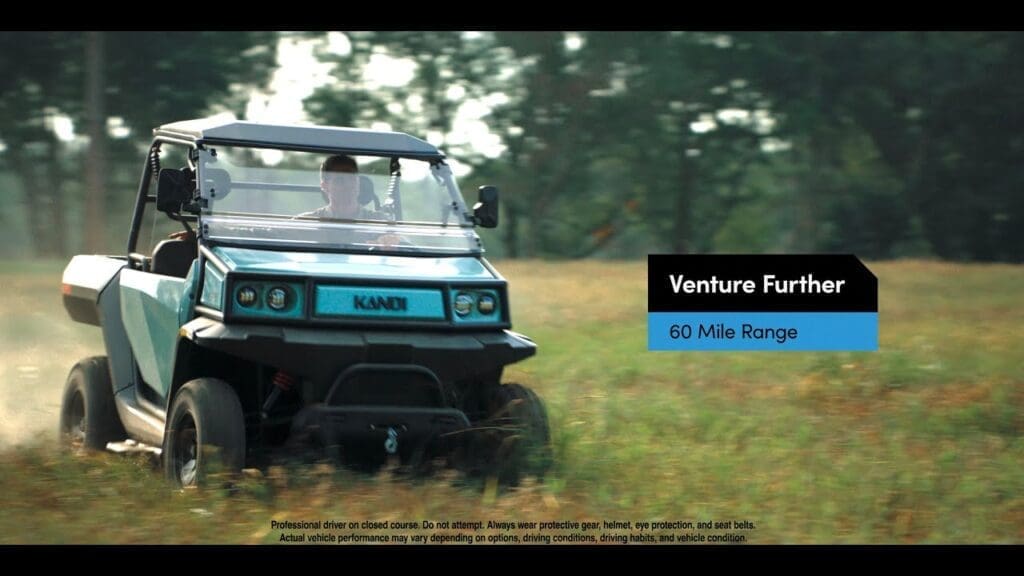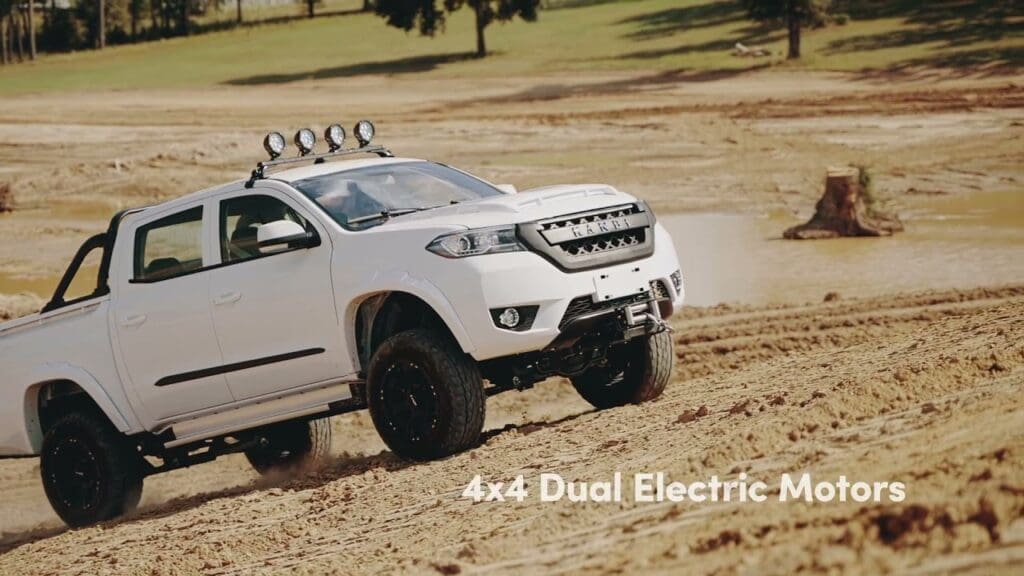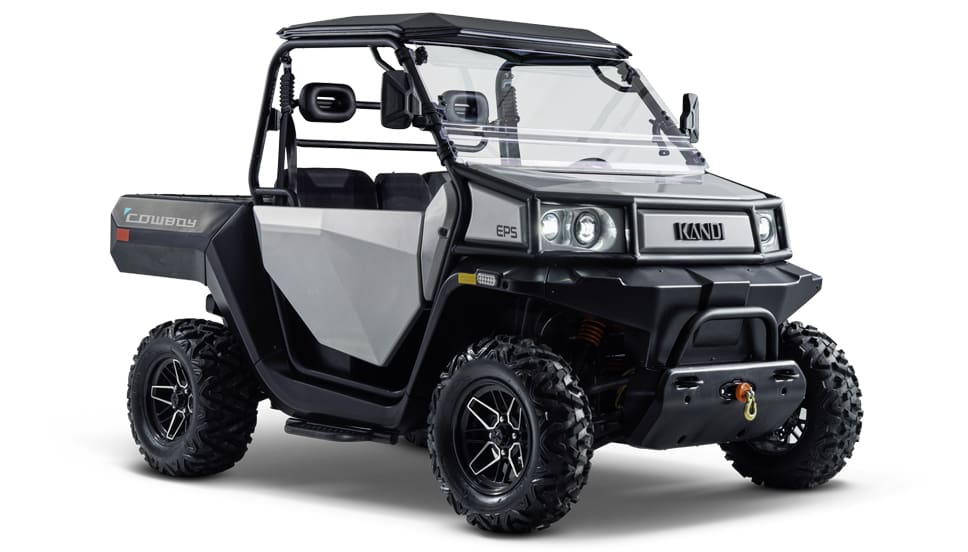Discover the ins and outs of navigating Texas golf cart laws with our comprehensive guide.
Golf carts have evolved from the greens to become multifunctional vehicles, serving various purposes like transportation in residential areas, campuses, and industrial sites. Despite their convenience, safety concerns arise due to their weight and the absence of features like seatbelts and doors.
The United States has over 15,000 golf cart-related injuries each year, emphasizing the need for adherence to safety regulations. It also underscores the importance of understanding and abiding by the golf cart laws.
This article aims to enlighten you on the regulations governing these versatile vehicles. Kandi America, headquartered in Dallas, Texas, distributes electric recreational vehicles and equipment. With a commitment to safety and compliance, we present this guide to ensure you stay informed and navigate Texas golf cart laws seamlessly. Safety is paramount, and understanding the rules is the first step toward a secure and enjoyable golf cart experience.
Texas Golf Cart Regulations: The Basics
To navigate the Lone Star State’s golf cart regulations effectively, understanding how the Texas Department of Motor Vehicles (TxDMV) defines golf carts and Neighborhood Electric Vehicles (NEVs) is crucial. In Texas, golf carts fall under the NEV category, which encompasses electric vehicles designed for low-speed use.
Texas imposes specific regulations to ensure safety and compliance when using golf carts away from the golf course. While these vehicles are allowed on public roads with speed limits of 35 mph or less, they must adhere to certain conditions. These conditions include operational features such as headlights, tail lights, brake lights, reflectors, a parking brake, and a rearview mirror. Compliance with these specifications ensures the safe integration of golf carts into public roadways.
A key aspect of Texas golf cart laws is the requirement for a golf cart license plate. To obtain a golf cart license plate Texas, individuals must follow a straightforward process through the county tax assessor-collector’s office. This office handles the registration and titling of golf carts to ensure they meet the necessary safety standards. The golf cart license plate Texas is a visible indicator that the vehicle has met the state’s requirements for use on public roads.
Navigating the process involves submitting the necessary documentation, including proof of ownership, a completed application form, and any required fees. The county tax assessor collector’s office will issue a golf cart license plate, making the vehicle road-legal within the specified speed limits.
Ensuring compliance with Texas golf cart laws is a legal obligation and a crucial step in promoting safety on public roads. Adequately registered and equipped golf carts contribute to the overall well-being of both drivers and pedestrians. Understanding the nuances of golf cart regulations helps individuals enjoy the convenience of these vehicles.
Operating Golf Carts on Texas Roads
The US golf cart manufacturing industry has experienced a compound annual revenue growth rate of 5.4% over the last five years, reaching an estimated $1.2 billion in 2023. This underscores the widespread prevalence of golf-related activities across the country. In Texas, where the popularity of golf is writ large, a common question arises: “Can you drive a golf cart on the road in Texas?”
Let’s look into the regulations to find out!
Understanding the nuances of operating golf carts on Texas roads involves navigating specific regulations outlined in the Texas Transportation Code Chapter 551. The state recognizes various scenarios where golf carts can legally traverse beyond golf course boundaries.
In master-planned communities, golf carts find legal footing on roads. These communities often have lower speed limits and designated pathways for golf carts to allow for their safe use within residential areas. This is convenient for residents, allowing them to use golf carts for short-distance travel within their neighborhoods.
On the sandy shores of Texas, golf carts can also operate on beaches. It adds a leisurely dimension to coastal living as residents and visitors can use golf carts to explore the coastline or move equipment to and from the beach.
Certain highways in Texas with speed limits of 35 mph or less open their lanes to golf carts. This regulation aligns with the state’s commitment to accommodating various modes of low-speed transportation. It is important to note that while highways may allow golf carts, compliance with safety features such as headlights, tail lights, and reflectors remains mandatory.
The Texas Transportation Code Chapter 551 provides the legal foundation for these permissions. Specific sections within the code outline the conditions under which golf carts can operate on public roads. For instance, Section 551.401 acknowledges golf carts as a class of vehicles that can be operated on public roads with certain restrictions. Section 551.403 empowers local authorities to regulate golf cart operations within their jurisdictions, adding a layer of flexibility to the state-level regulations.
For more information on driving golf carts in Texas, explore our blog post: Are Golf Carts Street Legal in Texas?
Licensing and Insurance for Golf Cart Operators
How old must you be to drive a golf cart in Texas? Generally speaking, golf cart operators must possess a valid driver’s license unless operating within designated circumstances exempted by law. While the Texas Transportation Code Chapter 551 outlines conditions under which golf carts can be driven on public roads, having a driver’s license remains a standard requirement to ensure safe operation.
Liability insurance is typically mandatory for golf cart operators to provide coverage for accidents or damage. Exemptions may apply in certain situations, however, such as when the golf cart is operated solely within a master-planned community or on private property. Understanding these licensing and insurance nuances is crucial for golf cart operators in Texas to navigate legal requirements responsibly.
Required Equipment for Golf Carts
Golf carts operated on Texas roads must adhere to essential equipment regulations to ensure legal compliance and safety. As mentioned above, the minimum requirements include functional headlamps, tail lamps, reflectors, parking brakes, and mirrors. Golf cart operators must prioritize the installation and proper maintenance of these components to meet state regulations and contribute to the overall safety of road users.
Special Circumstances for Golf Cart Operation
Special circumstances allowing golf carts on public highways in Texas include activities like retrieving or delivering mail and packages. According to Texas Transportation Code provisions 551.453, 551.454, and 551.455, these situations are recognized exceptions where golf carts can operate on public roads. Understanding and adhering to these specific provisions ensures golf cart operators engaging in mail and package-related tasks comply with the state’s regulations. These provisions also demonstrate the flexibility of Texas laws in accommodating diverse transportation needs.
Equipment and Inspection Requirements
Golf carts operated at 25 mph or less speeds in Texas must comply with specific equipment requirements, including displaying slow-moving vehicle emblems. It’s crucial to note that vehicles adorned with these emblems are exempt from inspection. This exemption streamlines the process for operators and emphasizes the importance of adhering to prescribed equipment standards to ensure safety and compliance with Texas regulations.
Safe and Legal Golf Cart Operation in Texas
Navigating Texas golf cart laws is essential for their safe and legal operation. Understanding the classifications, licensing requirements, and equipment specifications outlined in the guide ensures responsible use.
Adhering to Texas Transportation Code provisions and obtaining necessary licenses and registrations, including obtaining a Texas golf cart license plate is crucial. Safety features such as slow-moving vehicle emblems add an extra layer of protection. We encourage readers to prioritize compliance while promoting the legal operation of golf carts and the well-being of all road users.
For further insights and a helpful golf cart maintenance checklist, visit Kandi America’s additional resources.
Check out Kandi America’s diverse lineup for a closer look at electric vehicles that adhere to Texas laws.



